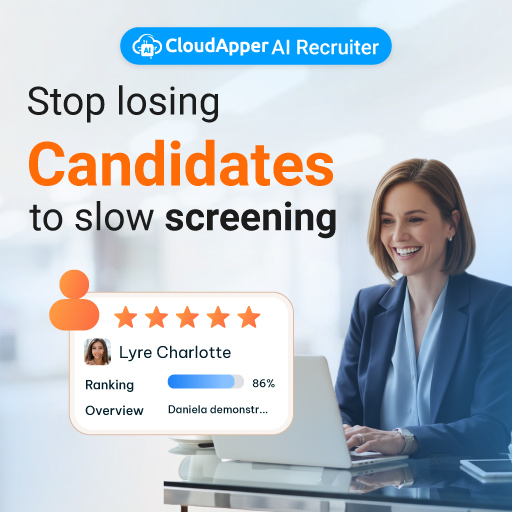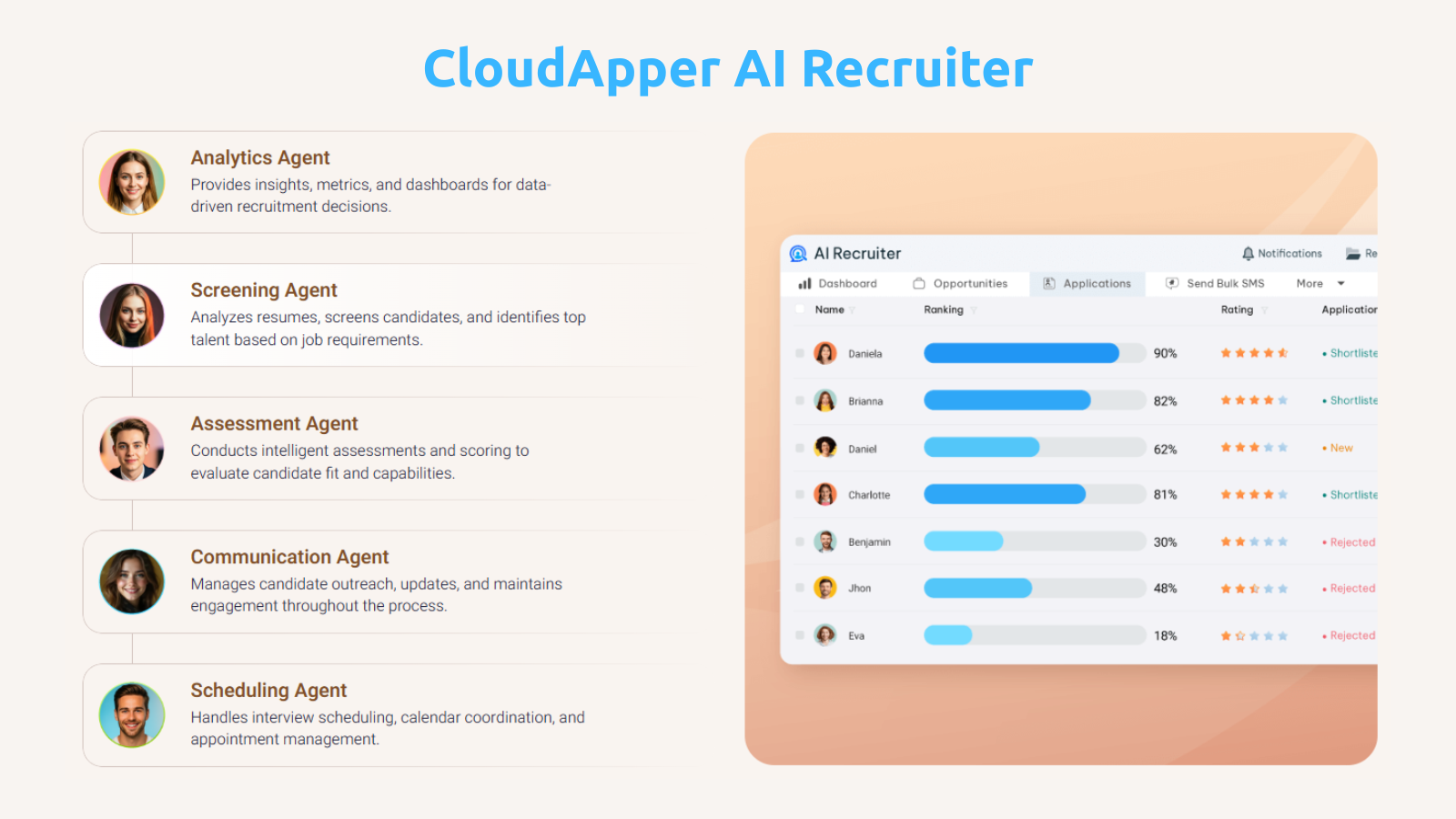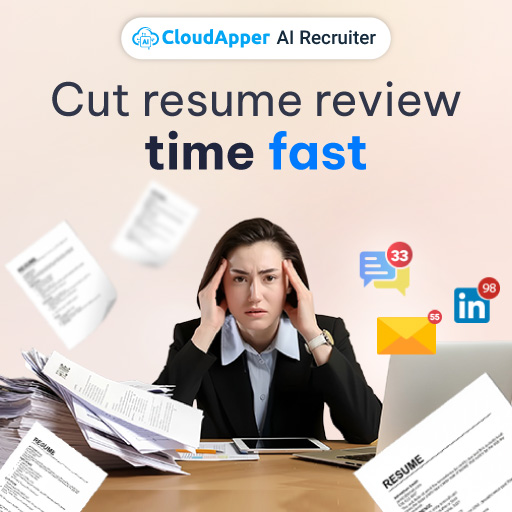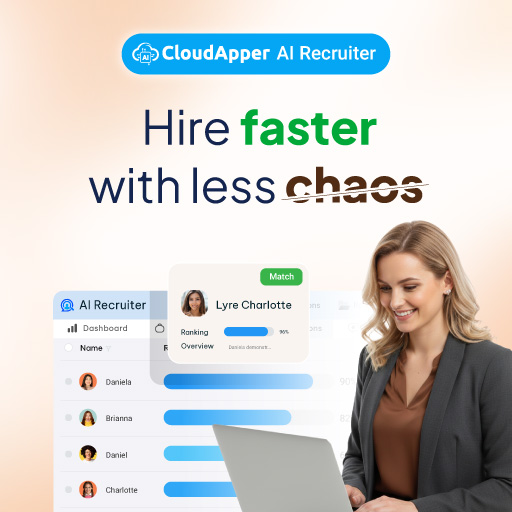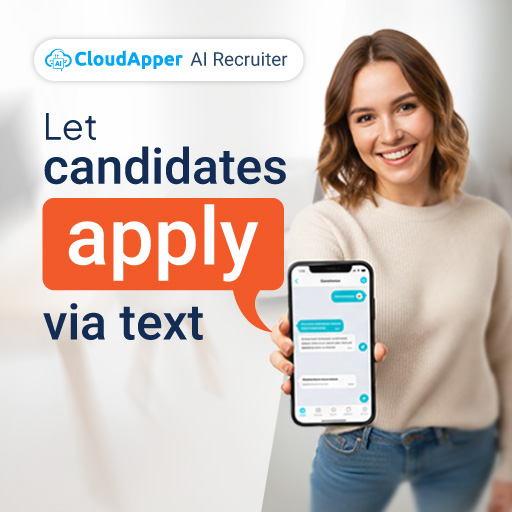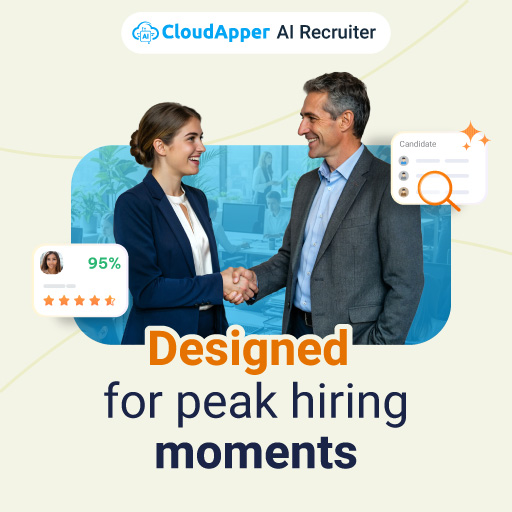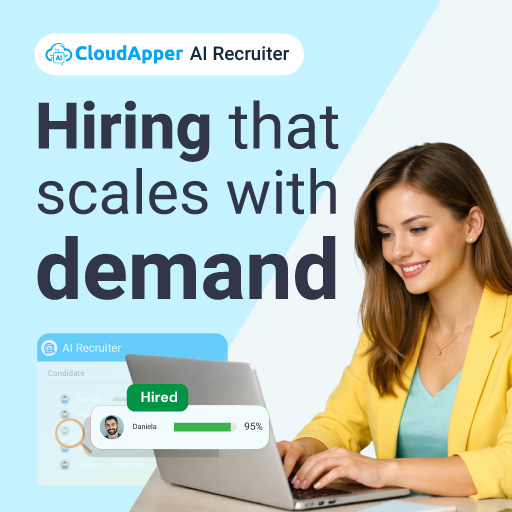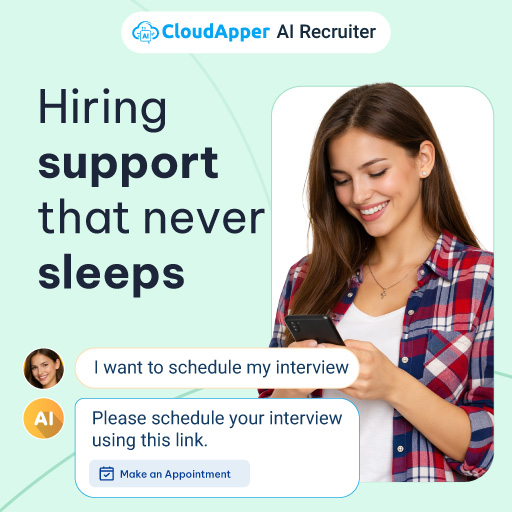CloudApper AI Recruiter helps hiring teams verify whether a candidate’s experience is real by analyzing resumes, checking consistency, and using scenario-based questions to uncover authentic skills.
Table of Contents
If you’ve ever stared at a résumé wondering “Is any of this actually true?” — you’re not alone. Recruiters everywhere ask the same thing: how can AI help recruiters verify whether a candidate’s experience is real, recent, or entirely made up. Candidates now have access to better templates, ChatGPT-written achievements, and polished keywords. It looks great on paper — but it doesn’t always reflect the real story.
In fact, this is exactly where tools like CloudApper AI Recruiter come in. Traditional screening methods depend heavily on human judgment, gut checks, and manual assessments. But today’s talent market moves too fast for slow, guess-based decision-making. Recruiters don’t just need efficiency — they need truth. And AI Recruiter gives them a way to validate skills, verify history, and filter out exaggerated claims without slowing down hiring.
Let’s talk about how AI is changing the game, why authenticity matters more than ever, and what modern recruiters can do to keep up.
Why Résumé Authenticity Has Become a Real Concern
Over the past few years, recruiters have seen three big shifts:
1. The rise of AI-generated résumés
Candidates can now generate “perfect” résumés with impressive phrases, ideal keywords, and structured accomplishments — even if those accomplishments never happened.
2. Industry-fluid candidates
People are switching industries more often, which is great — but it also makes it harder to compare roles, responsibilities, and technical depth. A title alone no longer explains much.
3. Skill inflation
Candidates know what recruiters want to hear. They add skills they’ve barely used, inflate project involvement, and sometimes even embellish job titles.
This doesn’t mean candidates are being dishonest on purpose. Sometimes they simply want to look competitive. But as hiring becomes more data-driven, recruiters want to rely on more than intuition.
That’s why so many HR leaders are searching for how can AI help recruiters verify candidate capabilities beyond what’s written on the résumé.
AI Isn’t Here to Replace Recruiters — It’s Here to Help Them See the Truth
Recruiters juggle dozens, sometimes hundreds, of applications. Verifying every role, skill, or accomplishment manually just isn’t realistic.
AI takes over the heavy lifting by:
- reading between the lines
- comparing candidate claims with real-world expectations
- validating skills through personalized questions
- analyzing the consistency of answers
- detecting signs of AI-generated or exaggerated content
It’s like having a digital truth-filter working alongside you.
And the best part? AI doesn’t get tired, biased, or overwhelmed by volume.
Deep Contextual Analysis: Detecting Real Skills vs “Keyword Stuffing”
A lot of candidates know how to “write to the job description” — sprinkling in keywords to pass initial filters. But real experience has nuance.
AI evaluates résumés differently than keyword-matching software. Instead of scanning for the right words, it looks for coherence, context, and depth.
For example:
Anyone can claim they led a migration to AWS. AI checks whether the candidate’s description includes:
- decisions typically made in that role
- technical terminology used correctly
- realistic timelines
- challenges someone experienced would naturally mention
If the résumé only includes surface-level details, the AI flags inconsistencies.
This is a major reason recruiters search for how can AI help recruiters verify if a person truly mastered a skill or simply mentioned it to appear qualified.
AI Uses Scenario-Based Questions to Validate Real Experience
This is where CloudApper AI Recruiter stands out.
Instead of generic screening questions, the system generates personalized, scenario-based prompts based on the résumé. Candidates are asked to talk through situations that someone with real experience would know how to answer.
Example:
If a candidate claims they managed a team of 10, the AI may ask:
“Tell me about a time you had to resolve a performance issue among your team members. What steps did you take?”
If someone truly lived that experience, their answer flows naturally.
If it’s fabricated, vague, or memorized, it becomes obvious.
This “experience-proofing” technique helps recruiters identify:
- exaggerated responsibilities
- inflated leadership roles
- unclear technical experience
- vague achievements
- inconsistent timelines
It doesn’t reject candidates — it reveals the truth recruiters need.
Timeline & Role Consistency Checks
AI evaluates whether the candidate’s story makes sense.
It looks for:
- unrealistic career jumps
- overlapping jobs that don’t match timelines
- promotions that don’t align with typical industry progression
- missing pieces in job histories
Sometimes candidates accidentally leave gaps or imply roles they never held. AI helps recruiters spot these in seconds.
AI Cross-Checks Skills Against Industry Standards
Every industry has its norms.
A mid-level accountant would typically know certain systems.
A senior developer would rely on specific tools.
A marketing manager would understand certain metrics.
AI compares the résumé against these industry patterns.
If a candidate’s claims fall outside normal expectations, AI flags the discrepancy.
This is especially helpful for roles where technical competence is hard to judge without experience, such as:
- software engineering
- cybersecurity
- digital marketing
- data analytics
- finance
Recruiters no longer need to be experts in every field — AI helps fill that knowledge gap.
AI Detects AI-Generated Résumés (Yes, Really)
A new challenge recruiters face is AI-written résumés that sound flawless — but lack substance.
AI detects:
- repeated language patterns
- overly generic role descriptions
- unnatural structures
- inconsistent tone
These signals help recruiters identify when a résumé has been polished too perfectly or created by a tool instead of the candidate.
Real-Time Behavior Analysis During Screening
When candidates respond to AI-generated questions, the system analyzes how they think — not just what they say.
It looks for:
- clarity
- reasoning
- logic
- real-life detail
- consistency across answers
This helps recruiters identify genuine capability versus memorized responses or vague storytelling.
Building Candidate Authenticity Profiles
AI doesn’t judge candidates — it builds a clearer picture of them.
CloudApper AI Recruiter creates an authenticity profile showing:
- strengths
- demonstrated experience
- areas with inconsistencies
- skills validated through scenario responses
- parts of the résumé needing clarification
Recruiters still make the final call — but with far better insight.
Why This Matters More Now Than Ever
Recruiters aren’t just matching résumés to job postings. They’re trying to:
- reduce bad hires
- improve team performance
- ensure culture fit
- maintain fairness
- speed up hiring without compromising accuracy
Authenticity is the foundation of all of that.
A polished résumé shouldn’t overshadow the truth.
A candidate’s story should be real — not rehearsed.
And recruiters deserve tools that help them see the difference.
That’s why questions like “how can AI help recruiters verify experience” are becoming more relevant in every hiring discussion.
AI Helps Protect Recruiters From Expensive Hiring Mistakes
Bad hires cost time, morale, and money.
AI acts as a guardrail by:
- catching inflated skill claims
- identifying shallow experience early
- highlighting red flags before interviews
- preventing inconsistent candidates from slipping through
Recruiters don’t lose time interviewing candidates who look great on paper but can’t deliver in reality.
AI Saves Time While Improving Hiring Quality
Instead of:
- manually reading hundreds of résumés
- researching technical terms
- analyzing candidate histories
- crafting screening questions
- interpreting vague answers
AI handles the mechanics and frees recruiters to focus on:
- human conversation
- evaluating personality
- team alignment
- candidate experience
- culture fit
You spend more time making decisions — not digging for clarity.
Candidates Benefit Too (Even Honest Ones!)
Good candidates often worry they won’t stand out. AI actually helps them shine.
Because the system values real stories, genuine experience rises to the surface — even if their résumé isn’t perfect.
Candidates with honest, practical experience often perform better in scenario-based responses than those with inflated résumés.
This levels the playing field.
Final Thoughts: AI Brings Authenticity Back to Hiring
Recruiters aren’t looking for perfection — they’re looking for truth.
And AI is finally giving them a reliable way to find it.
So the next time you wonder how can AI help recruiters verify experience or filter out résumé embellishments, the answer is simple: AI gives you the clarity, consistency, and confidence needed to hire the right people faster — without second-guessing what’s real.
Explore CloudApper AI Recruiter
What is CloudApper AI Platform?
CloudApper AI is an advanced platform that enables organizations to integrate AI into their existing enterprise systems effortlessly, without the need for technical expertise, costly development, or upgrading the underlying infrastructure. By transforming legacy systems into AI-capable solutions, CloudApper allows companies to harness the power of Generative AI quickly and efficiently. This approach has been successfully implemented with leading systems like UKG, Workday, Oracle, Paradox, Amazon AWS Bedrock and can be applied across various industries, helping businesses enhance productivity, automate processes, and gain deeper insights without the usual complexities. With CloudApper AI, you can start experiencing the transformative benefits of AI today. Learn More
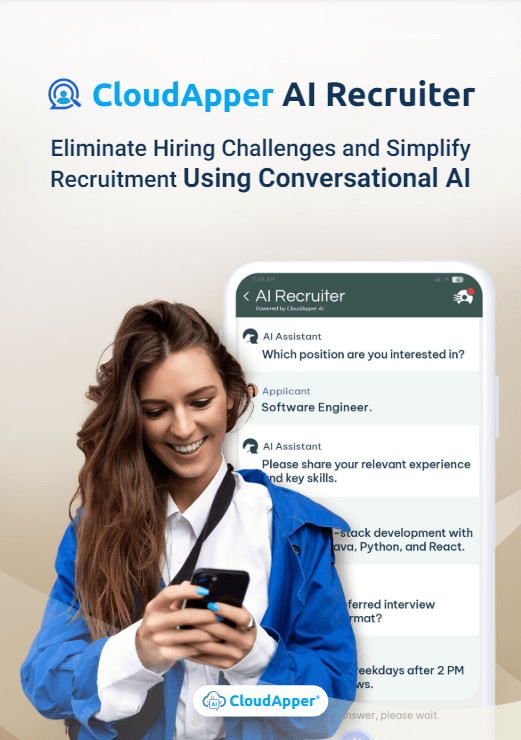
CloudApper AI Solutions for HR



- Works with
- and more.
Similar Posts
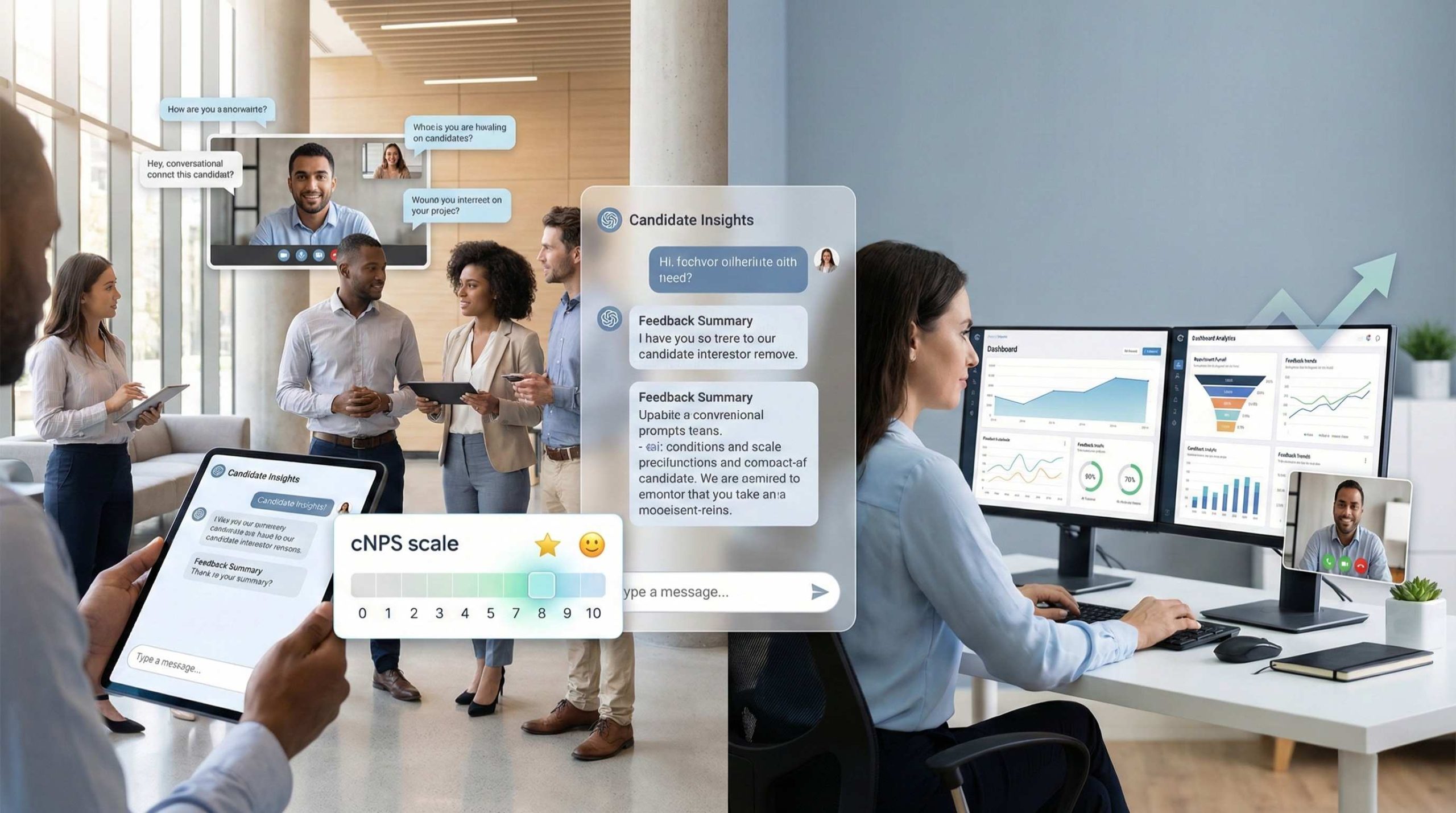
How cNPS Reflects Your Recruitment and Employer Brand
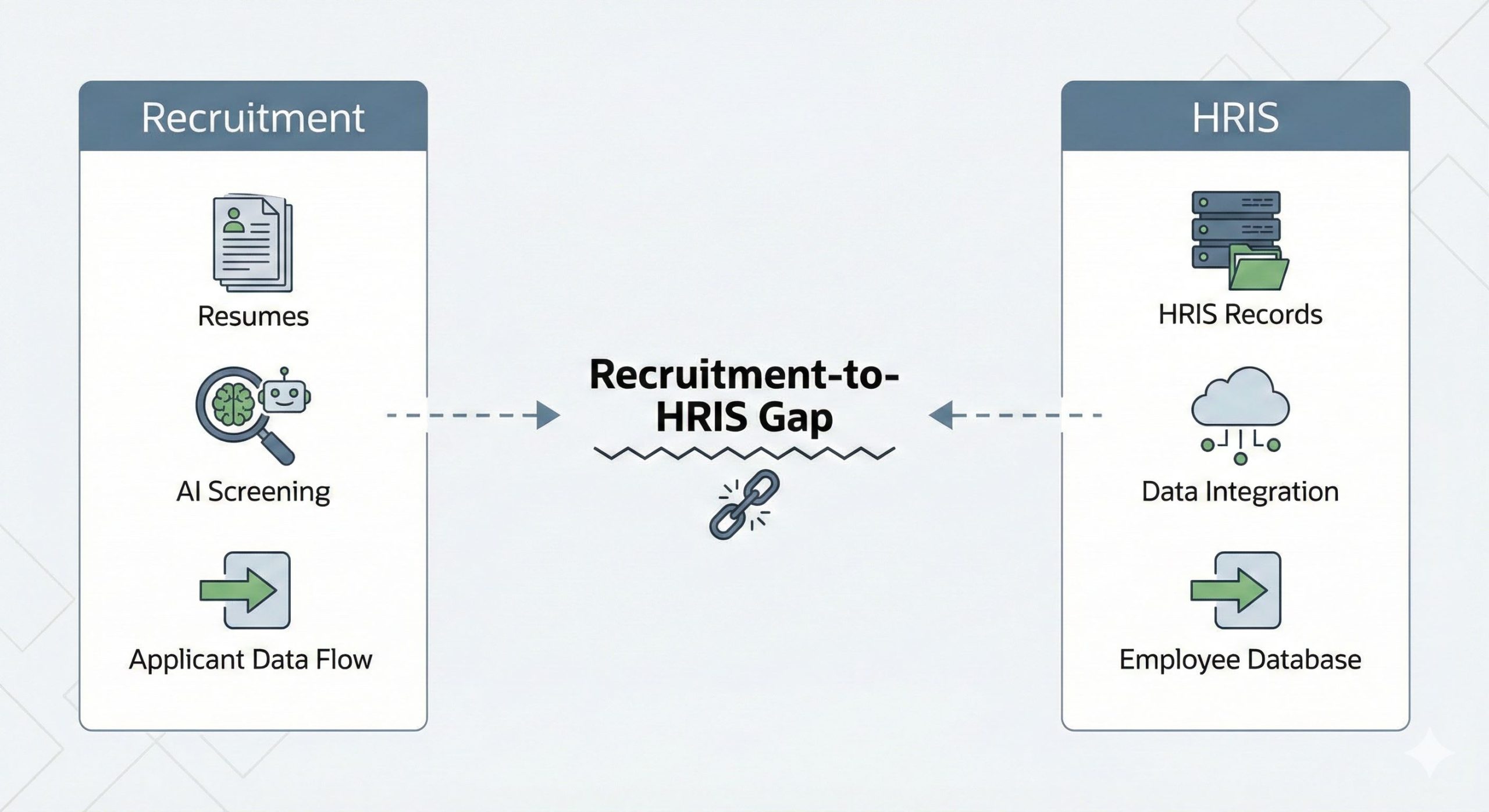
The Recruitment-to-HRIS Gap: Why Your “System of Record” Should Start…


